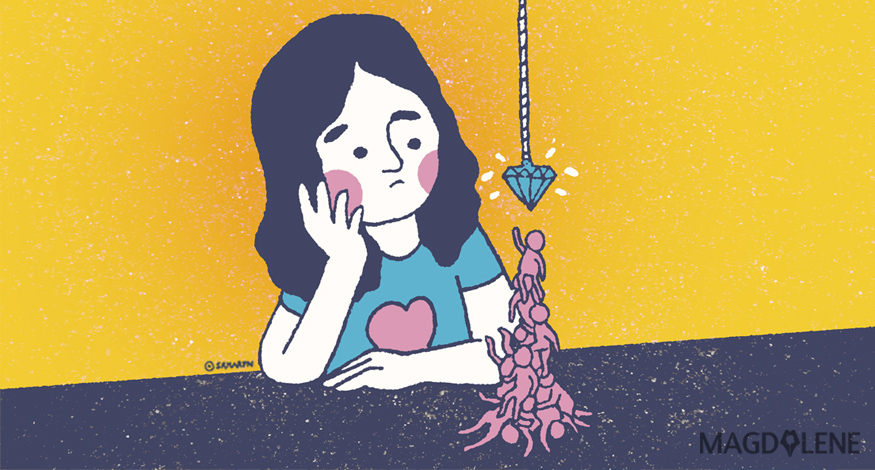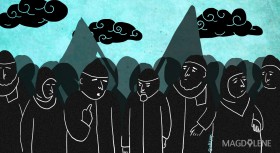I have just arrived at the restaurant and sat at a table where my friends were sitting, when I heard one of the girls ask question, “Where do you work now?”
As I was the last person to arrive, I decided to listen to their conversations first before I spoke. My friends were all fresh-graduates and our dinner that night should have been filled with nostalgic conversation about our memories in the same youth organization that we were part of two years back in college. Instead, I spent three straight hours listening to them talking about their jobs, trying to outshine each other. I watched them taking selfies with their smartphones and posting Instagram stories during dinner. They talked about going to a club to get drunk because they now made enough money to do so.
What surprised me the most was the fact that my friends seemed to have changed into people I no longer recognize. In the transitional period of our 20s, they had become people who valued artificial things. Society standards or maybe their company cultures have transformed them into people who seek validation, acceptance, and compliments from other people. On top that, they kept bragging about people they know who work in some prestigious companies.
That night, I couldn’t help but notice that the majority of my former friends have turned into social climbers.
According to the Urban Dictionary, a social climber is those who become friends with someone else if that person has something that they want or need. Social climbers value human relationship based on popularity and status, as those two things are their primary needs. They do not value depth and intimacy in their friendship, as they only befriend people who “know people.” More often than not, social climbers are ambitious, competitive and high-achieving as their one and only goal is to “get to the top”. They will never feel satisfied if someone else holds a “higher-status” than them.
Social climbers’ goal to always “get to the top” often occupies their lives, so it’s hard for them to be grateful for what they already have. They will also seek more and more, as they will never be truly happy with their own lives.
But if they are never happy, then why do so many people become social climbers?
The urge to fulfill their esteem needs, for one. According to Psychology Today, social climbing behaviors may stem from a low self-esteem and an extreme tendency towards self-comparison. Despite being social butterflies, they may actually feel insecure about themselves.
They will always see other people as better than them in terms of career, appearance, quality and personality. And because social climbers never believe in themselves, they use other people’s existence to boost their self-esteem. This is why they will never build genuine friendship because if they think that your status is lower than theirs, your friendship will never satisfy their esteem needs.
Lifestyle and identity crisis might also be the reasons behind the emerging of social climbers in our society. In this rapidly changing world, everyone wants to be recognized. My friends are in their 20s, an age when people want to be recognized as successful young people with bright future. And they want the world to see that they have lives. Social climbers will fill their Instagram feed with their achievements along with group selfies with popular people whom they might not even really know. If we analyze social climbers further, their lives are full of artificial things as they build their world based on social status and financial wealth.
I never say that it’s bad to be a social climber; I believe that everyone has unlimited choices to choose who they want to be. However, I can’t help but feel bad for social climbers as they will never understand and feel the true definition of happiness, blessings, and gratitude. They might never taste what true love is and the true meaning of human connection. They are forever obsessed with social status and popularity.
Despite our drives to achieve our professional goals, don’t let society’s success standards turn us into social climbers. They may seem like they have lives, but inside they are empty, always in search for something that will never satisfy them. And in the end, it’s not your social status that will be remembered when you’re dead. Rather, it’s your kindness and love.
Illustration by Sarah Arifin







Comments